In the demanding world of healthcare, maintaining a healthy work-life balance can be particularly challenging. Long hours, high-stress environments, and the emotional toll of patient care can make it difficult for healthcare professionals to find time for themselves and their families. However, achieving a balance is crucial for personal well-being and professional performance. Here are some essential tips for healthcare professionals to maintain a healthy work-life balance.
1. Prioritize Self-Care
Understand Its Importance
Self-care is the foundation of a balanced life. For healthcare professionals, it’s easy to put others’ needs first and neglect your own. However, you cannot pour from an empty cup. Ensuring you are mentally, physically, and emotionally healthy enables you to provide the best care for your patients.
Practical Self-Care Tips
- Regular Exercise: Incorporate physical activity into your routine, even if it’s just a short walk during your break.
- Healthy Eating: Make conscious food choices that fuel your body and mind.
- Sleep Hygiene: Aim for 7-9 hours of quality sleep per night. Create a bedtime routine to wind down after a long day.
- Mindfulness Practices: Engage in meditation, deep-breathing exercises, or yoga to reduce stress and increase focus.
2. Set Boundaries
Define Work and Personal Time
Creating clear boundaries between work and personal life is essential. Without them, work can easily encroach on your personal time, leading to burnout.
How to Set Boundaries
- Stick to a Schedule: Try to maintain consistent work hours. If you’re off duty, avoid checking work emails or taking calls unless it’s an emergency.
- Communicate Clearly: Let your colleagues and supervisors know your availability and respect their time as well.
- Learn to Say No: It’s okay to decline additional shifts or responsibilities if they interfere with your personal life and well-being.
3. Leverage Technology
Use Tools to Your Advantage
Modern technology can help streamline tasks and reduce workload, freeing up time for personal activities.
Effective Technological Solutions
- Telemedicine: Utilize telehealth platforms to manage patient consultations more efficiently.
- Task Management Apps: Organize your tasks and set reminders to stay on top of your schedule without becoming overwhelmed.
- Online Learning: Continue your education and professional development through online courses that fit your schedule.
4. Seek Support
Utilize Available Resources
Healthcare institutions often offer resources to help employees manage stress and maintain work-life balance. Take advantage of these services.
Support Systems to Consider
- Employee Assistance Programs (EAPs): Many hospitals and clinics provide EAPs that offer counseling and support services.
- Peer Support Groups: Join or form support groups with colleagues to share experiences and strategies for coping with stress.
- Professional Counseling: Don’t hesitate to seek professional help if you’re feeling overwhelmed.
5. Make Time for Hobbies and Interests
Pursue Passions Outside of Work
Engaging in activities you love outside of work is crucial for mental and emotional health. Whether it’s reading, gardening, playing a sport, or crafting, make time for your hobbies.
Balancing Hobbies with Work
- Schedule Leisure Time: Just as you schedule work, make appointments for your hobbies and interests.
- Unplug: Take regular breaks from technology and immerse yourself in activities that bring you joy and relaxation.
6. Plan Vacations and Breaks
Take Regular Time Off
Regular breaks and vacations are vital for recharging and maintaining long-term productivity and happiness.
Effective Vacation Planning
- Plan Ahead: Schedule your vacations well in advance and ensure your workload is managed during your absence.
- Fully Disconnect: During your time off, avoid work-related communications to fully recharge.
- Short Breaks: Incorporate short breaks into your daily routine to prevent burnout.
Balancing work and life in the healthcare field is undoubtedly challenging, but it is achievable with conscious effort and strategic planning. Prioritize self-care, set clear boundaries, leverage technology, seek support, pursue hobbies, and plan regular breaks. By implementing these strategies, healthcare professionals can enhance their well-being and continue to provide exceptional care to their patients. Remember, a well-balanced life leads to a more fulfilling career and a happier, healthier you.
Ready to take the next step in your healthcare career?
Join a dynamic team that values your growth and expertise! Apply with Acquire Medstaff today and become part of a community dedicated to excellence in healthcare. Visit our Jobs page now to see our current openings and start your journey toward making a meaningful impact. Don’t miss the opportunity to advance your career with a leading healthcare agency!







